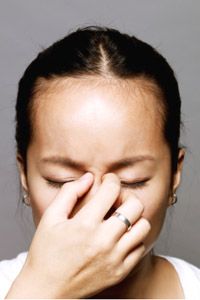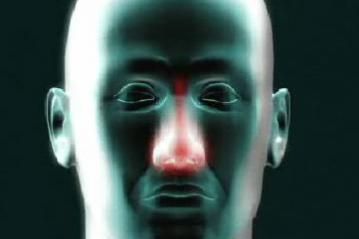
Hay fever is another name for pollen allergies and is a type of allergic rhinitis. Since it's actually an allergic response, your immune system is involved in hay fever. When you inhale pollen from trees, grass or weeds that you're allergic to, your body mistakenly thinks it's being invaded by a dangerous substance. An antibody called immunoglobulin E is released, and it finds the pollen in your system and delivers it to your mast cells, which then work to neutralize the allergens. In the process, a slew of chemicals are released, including histamine. Histamine is the chemical responsible for most of your hay fever symptoms, like a runny nose, congestion, sneezing and itchy, watery eyes.
Generally, hay fever sets in during childhood or early adulthood. As the years go by, hay fever can go through periods when it's worse or better, but the general trend is that after your 20s, the symptoms lessen as you age. Since hay fever is caused by pollen, it's considered a seasonal condition. Depending on what pollens you're allergic to, your symptoms can last from a month to half a year. Tree pollen is normally released into the air in the spring, while grass pollen starts to float around in late spring and summer. Meanwhile, weeds pollinate in the fall. Depending on the weather, your category of hay fever and your sensitivities within the category, your symptoms can fluctuate from week to week.
Advertisement
Since hay fever can last for months, you have to find a way to live with the symptoms. Many people turn to the drugstore for help. Over-the-counter and prescription medications are effective at combating the discomfort of hay fever. Antihistamines are helpful in fighting the itching, sneezing and runny nose caused by the histamine. Decongestants help clear up your nasal passages to allow easier breathing, and nasal steroids relieve the inflammation and runny nose.
Advertisement

